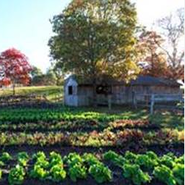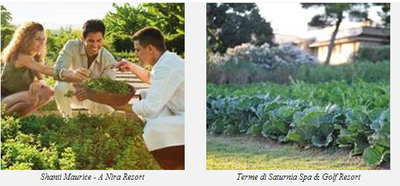
Leading Hotels of the World is burnishing its credentials in the eyes of responsible foodies with more farm-to-table options throughout its portfolio.
The brand has been on a quest to acquire farmland to take control of the produce that it features in restaurants, which follows a growing trend among luxury hotel brands. Consumers aware of the tremendous pressure placed on the environment by large-scale farming systems are demanding more sustainable practices from their favorite brands.
"The farm to table movement is pervasive among foodies," said Chris Ramey, president of Affluent Insights, Miami, FL. "It’s the new standard in upscale restaurants.
"It Illustrates a commitment to local businesses, along with freshness," he said.
Mr. Ramey is not affiliated with Leading Hotels of the World, but agreed to comment by press deadline.
Leading Hotels of the World was unable to respond by press deadline
Food awareness
The Chatham Bars Inn, Chatham, MA, owns an eight-acre farm 10 miles from the property where it grows produce such as lettuce, kale, summer corn, squashes, carrots, eggplants and more than 30 varieties of tomatoes.
Guests are invited to tour the grounds and select items that the chef can prepare.
Enough vegetables to cover the menu are cultivated at the Villa La Massa property in Candeli, Italy.
Various Leading Hotels of the World gardens
For properties unable to meet demand with their gardens alone, including the The Kahala Hotel and Resort, Honolulu, HI, they buy from local producers, simultaneously supporting local business and showcasing the superior quality of locally cultivated produce.
Leading Hotels of the World gardens
The Grand Hotel, Stockholm, Sweden, takes this community activism further by apportioning part of its garden for community use to let locals learn the importance of autonomous gardening. Chef Mathias Dahlgren also uses the garden as an educational ground to teach hotel staff more about what is going into the menu.
A rooftop garden can be found at the brand's Johannesburg property where guests can first take a tour with the head chef and then take part in a cooking class.
Leading Hotels of the World gardens
Each of these properties tailor their menus in accordance with what can be procured.
Taking charge
Other hotel brands have become proponents of the vitally important organic food movement.
For instance, The Ritz-Carlton, Kapalua, HI, expanded its on-site garden to increase the amount of fresh produce used in its restaurant menus and to prepare for wellness activities last fall.
The Kapalua garden provides benefits for both the hotel and the surrounding area with compost piles, a horticulture learning center and an abundance of fresh ingredients. Environmentally sustainable practices can uplift the spirit of the surrounding community and provide the hotel with a level of authenticity that imported ingredients cannot attain (see story).
Also, Four Seasons Marrakech, Morocco, increased the yield of an on-site organic garden with its first olive harvest. The resort’s chefs will extract oil from the olives using a traditional press that will then make its way into certain dishes to enhance flavor (see story).
"Organic and sustainability demonstrate a commitment to superior products," Mr. Ramey said. "They also exhibit local engagement.
"Extraordinary taste is the standard today – no longer something special," he said. "Resourcing organic foods locally is the raising of the bar."
Final Take
Joe McCarthy, editorial assistant on Luxury Daily, New York



